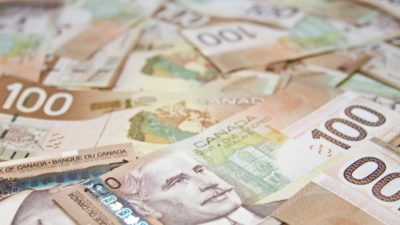So-called old money is a fortune made decades or even centuries ago. Sometimes the next generations do a nice job of growing that capital, expanding the family business into new, innovative areas. Other times the family just does what it can to maintain the fortune, feeling free to spend the dividends on a lavish lifestyle. And sometimes the heirs squander their wealth.
Hey, easy come, easy go.
There are a handful of Canadian families that have been wealthy for so long that it’s hard to imagine a world where they’re not dominant players in our country. The Weston family fortune can trace its origins to George, who started his namesake company in 1882. It was George’s son Garfield who made the move to acquire a large block of Loblaw shares in 1947, eventually controlling the company by the early 1960s.
Other families have been wealthy for generations, too. The Irving family of Atlantic Canada is now on its third generation of being one of the wealthiest families in Canada. And the Thomson, Rogers, and Saputo families have also been wealthy for decades.
There’s obviously something these families are doing right. Here are three of their top tactics that you can borrow for your portfolio.
Diversification? Nah.
Each of Canada’s dominant business families have followed a similar path. The founding member of the empire put the vast majority of their net worth into the business and counted on the market beating returns to make them rich.
It’s a formula followed by some of the world’s most successful investors as well. When Warren Buffett was first starting out in the 1950s and 1960s, he was known to put sometimes 30%, 40%, or even more of his money in one stock. And when Buffett liquidated his partnerships, he stuck just about all of his money in Berkshire Hathaway stock, a plan that worked out pretty well to say the least.
The diversification for most of Canada’s old money happened after they were rich, not before.
Buy great businesses
There’s another common theme from Canada’s old money. They all heavily invested in great businesses.
Look at George Weston Limited (TSX:WN) as an example. Over the years, the company has been a breadmaker and expanded into cookies and other bakery products. There’s always going to be a demand for bread. When people come back for your products on a daily basis, that’s usually the testament of a great business. And it owns a large stake in Loblaw, another great business.
It’s the same thought process with the Rogers Communications Inc. (TSX:RCI.B)(NYSE:RCI) telecom empire. Wireless, cable, and Internet services are things people don’t want to live without. Telecom products are high margin, at least after the customer is acquired. And even in a competitive landscape, Rogers and its peers still manage to post consistent profits. Those are all the testaments of a great business.
From an investor standpoint, it’s even easier. All you need to do is identify these great businesses and hold them over the long term. The biggest challenge is being patient and letting these investments do their thing.
Insist on dividends
Old money just about always wants to get paid. Perhaps you should have the same mentality.
Since many family members are still employed in the family business, the decision to pay dividends isn’t solely supported as a way for the founding family to support itself either. Rather, dividends are used to either bolster the family’s ownership stake in the business or as a diversification tool. Dividends are received and then used to invest other businesses, protecting the fortune.
Regular investors can use dividends in a similar way. Many companies offer dividend reinvestment programs, which allow shareholders to get more shares of the company instead of cash dividends. Some of these companies even offer shareholders a discount on these new shares, which is a really easy way for investors to supercharge their dividends. Or they can be received in cash and then used to diversify into other great businesses.







